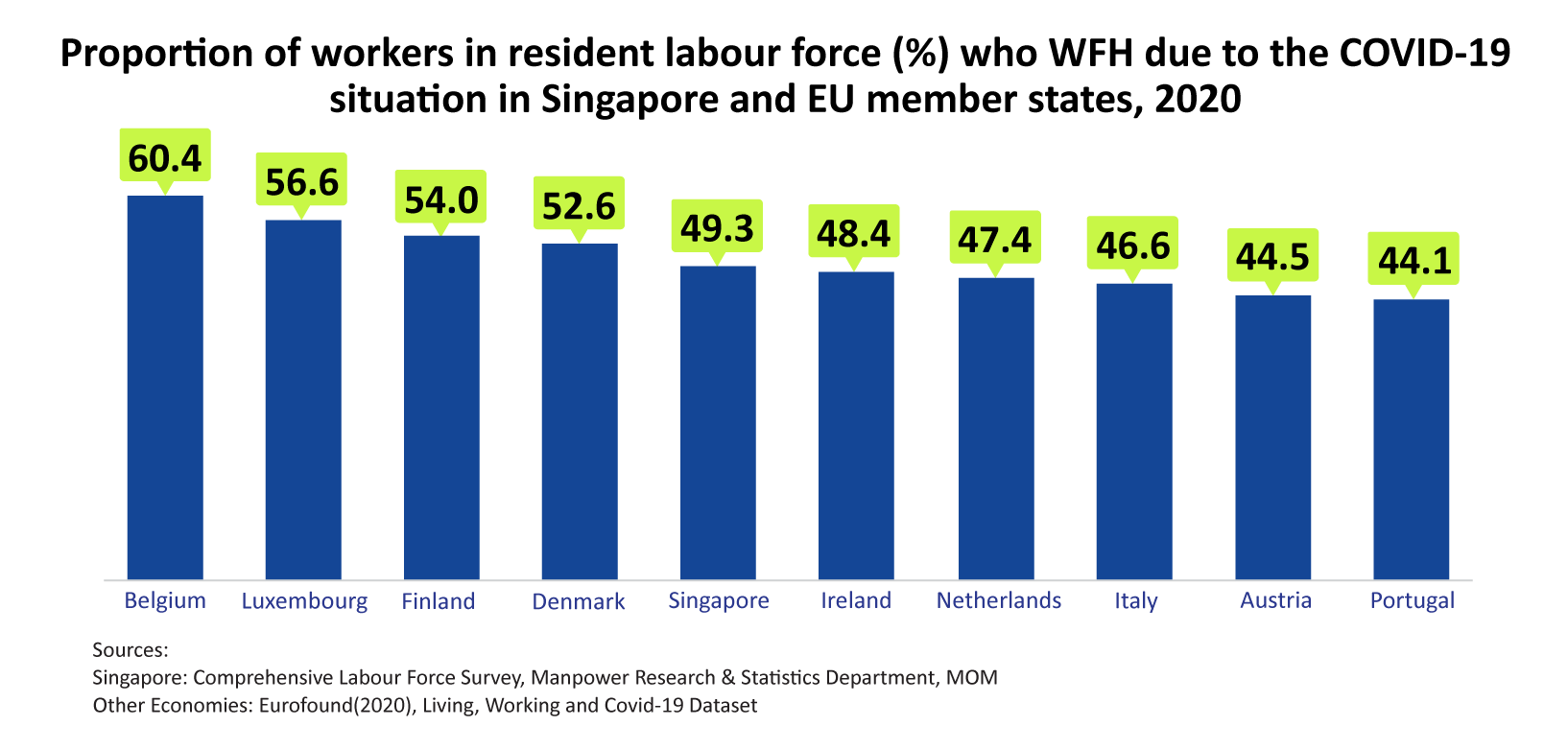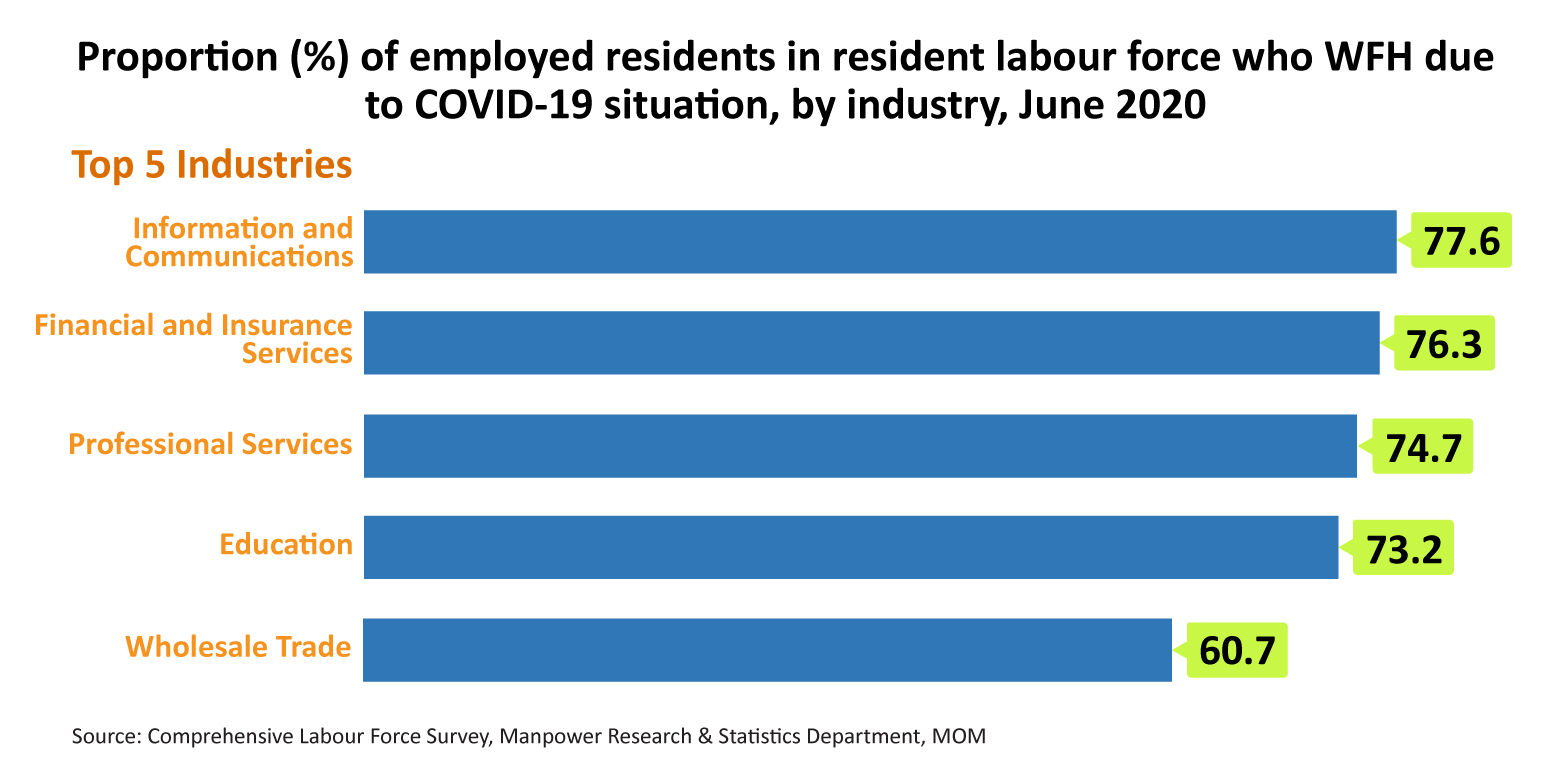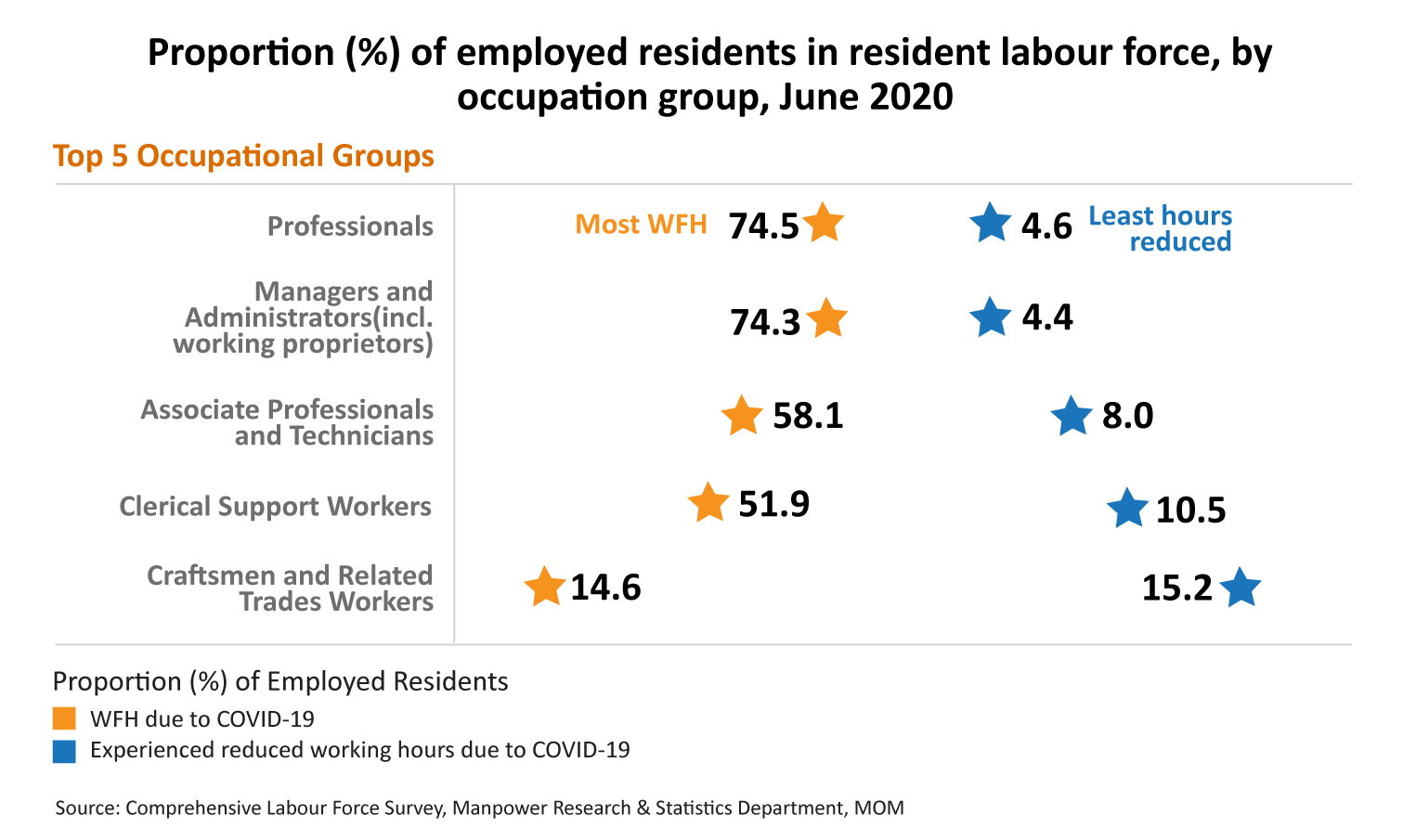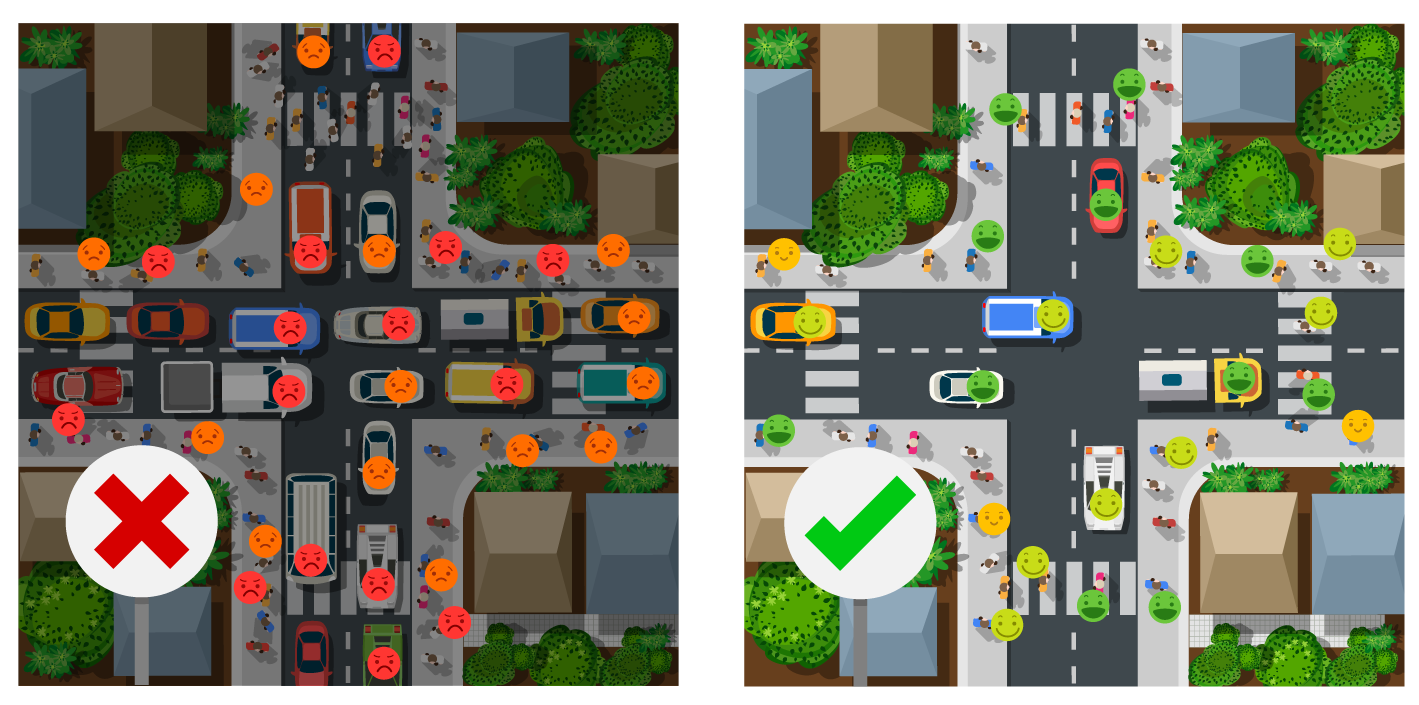Are Singaporeans working more remotely?
As the Covid-19 situation worsened globally in 2020, companies adopted a new mode of working, by enabling their employees to work from home (WFH). Singapore is no different, as
49% of employed residents worked remotely in 2020. This saw one of the highest proportions of resident employees working remotely compared to other European Union (EU) member states like Belgium and Finland, which saw more than half of their employed residents working remotely. To better understand and adapt to the potential shifts in work arrangements in Singapore, let us take a closer look at the situation and trends of remote working in Singapore in our
Labour Force in Singapore 2020 edition: Impact of COVID-19 on the Labour Market report.


Who are working remotely, and why?
The prevalence of remote working varied greatly across occupations and industries. As many as 77% of employed residents in the information and communications industry worked remotely in 2020 due to the COVID-19 situation. This is understandable as the occupations in this industry rely on technology access more than physical interaction at work compared to occupations such as craftsmen or trades workers (14.6%). Online tools like Zoom, Teams and Slack have become essential to these group of employees as video conferencing replaced physical meetings.

For employers looking to fill job vacancies, there was an increased need to provide flexible work arrangements (FWAs) like remote working. According to our
Job Vacancies 2020 report, 57% of job vacancies in 2020 seeking professionals, managers, executives & technicians (PMETs) were found suitable for remote working. For instance, occupations grouped as professionals, like applications/ systems programmers, cybersecurity professionals and IT infrastructure specialists, were found to have one of the highest propensities (62%) of working remotely. This may result in an increased demand of occupations with a high propensity for remote working, as cost savings for firms due to factors such as reduction in office lease space, could be a factor in recruitment.

However, working remotely for these group of employees did not necessarily translate into reduced hours worked.
Overall, in 2020, only 9% of employed residents experienced shorter work hours than usual, or no-pay leave due to the pandemic. This means that the ability to work remotely is feasible, especially for PMETs despite COVID-19. Among professionals, only 4.6% experienced a reduction of working hours, while 74.5% of them worked remotely in 2020. This further supports the high propensity for these occupations to work remotely due to the nature of their work. For this group of resident employees, hybrid models of working arrangements could be introduced even after the pandemic ends.

Is remote working here to stay?
COVID-19 has driven most countries to find innovative ways to create more conducive remote working environments and habits even after the pandemic. For instance, in Belgium, a dedicated taskforce was set up for the purpose of encouraging ongoing and future tele-working in Wallonia. Their aim is to reduce traffic on Belgium streets, for employees to enjoy a congestion-free commute to and from work, on days which they must travel to office. This was motivated by the much-reduced level of pollution all over Europe during the pandemic.

In Singapore, it seems like FWAs are here to stay. As fatigue from remote working sets in, a hybrid of working remotely and returning to office could be the preference. A healthy brew of innovation and higher productivity can stem from increased work life balance due to such work arrangements. It can increase workers’ mental well-being, as they are more empowered in scheduling their work and personal activities. The younger generation of workers also value the flexibility more as we experience a shift in generation in the workforce.
However, firms will need to walk a tight rope to balance between over-empowering their employees and managing their resources. There is never a one-size-fits-all solution to the future of working after COVID-19, but changes to our working arrangements and habits are necessary for Singapore to stay relevant globally. This will help firms to connect with employees and achieve an optimal level of work-life balance and productivity going forward.
